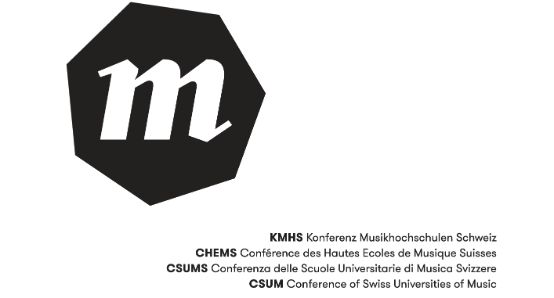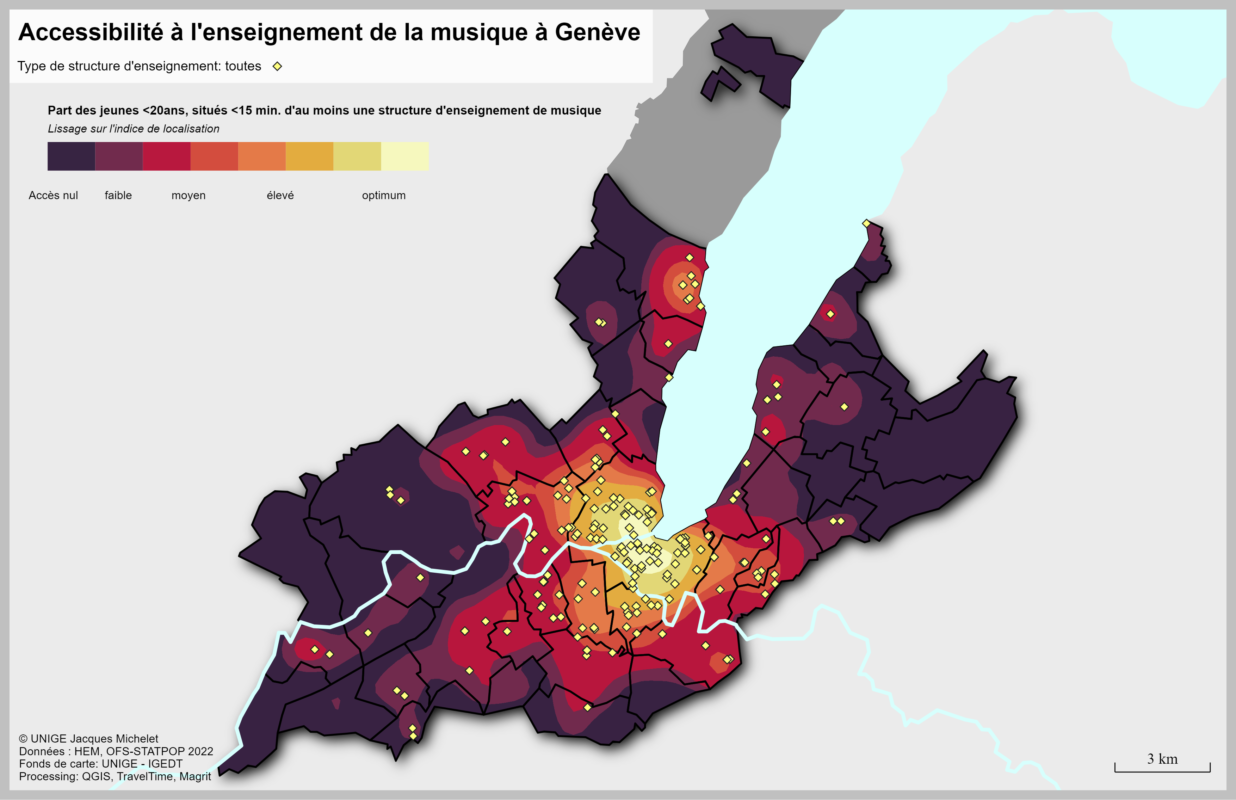Dritter Zyklus: Kontext und Perspektiven - Orpheus Institute

The question of developing the 3rd cycle in music has been raised in Switzerland for many years, with varying degrees of success in different parts of the country.
Antoine Gilliéron - Addressing the issue of the coherence of music students' careers, from their entry into a music college to their final degree, inevitably raises questions about the relationship between the first (Bachelor's), second (Master's) and third cycles (Doctorate). What is the situation in Switzerland?
Der dritte Zyklus, also Studien auf Doktoratsstufe, sind an Musikhochschulen ein relativ neues Phänomen, obwohl sie an einzelnen Institutionen seit Langem möglich sind. Dafür gibt es einen Hauptgrund: Als höhere Ausbildungsstätten für Musikerinnen und Musiker bieten die Musikhochschulen eine Berufsausbildung an, die auf eine Karriere als Musiker, Komponistin oder Musiklehrer ausgerichtet ist, sei es an allgemeinbildenden Schulen oder an Musikschulen aller Art. Studien des dritten Zyklus anzubieten, war lange Zeit ein Privileg der Universitäten. Und die Behörden erachteten die Institutionen, die für die musikalische Berufsausbildung zuständig sind, nicht durchwegs für geeignet, um einen Doktorats-Studiengang auszuarbeiten, wie er im Bologna-Prozess definiert wurde.
Aus diesem Grund haben Musikhochschulen in Europa auf unterschiedliche Weise begonnen, dritte Zyklen anzubieten. Einige können diese Qualifikation aufgrund einer individuellen Zertifikationsberechtigung unabhängig erteilen, andere - und das gilt für alle Schweizer Musikhochschulen - müssen Zusammenarbeitsformen und Partnerschaften mit Universitäten aushandeln. Solche Partnerschaften können für beide Seiten gewinnbringend sein, sowohl was den Austausch von Kenntnissen wie die Steigerung der internationalen Ausstrahlung betrifft. Die Zusammenarbeit ist auch mit ganzen Hochschul-Netzwerken denkbar und kann auf Fachrichtungen ausserhalb der Musik ausgedehnt werden (zum Beispiel auf andere Künste oder wissenschaftliche Fächer).
With this framework in mind, it's time to question the form and content of (artistic) research in a doctoral context. While research has traditionally been carried out on music (particularly in musicology) or with music (in the case of a doctorate in performance), research with music opens up a whole new field of possibilities. As a result, current efforts at national level are focused on the development of the latter, which is still little appreciated: research through music.
The political hurdles to be overcome in order to offer more opportunities for post-graduate training in Switzerland lie mainly at national level. Federal legislation is at a standstill, and as a result, each of the music colleges involved in higher education in Switzerland has to develop special partnerships, whether international or not, with universities or other tertiary training institutions.
As President of the Conference of Swiss Music Schools (CHEMS) and General Director of the Haute École de Musique Vaud-Valais-Fribourg (HEMU), Noémie L. Robidas is well placed to shed light on this subject. Noémie L. Robidas is well placed to shed light on this subject: "At CHEMS, we want to make the political sphere aware that artistic research suffers a double whammy in terms of funding, both in terms of the criteria used to judge research projects and those relating to researchers' CVs. These criteria are inapplicable to the type of research carried out and the profile of researchers at our music colleges. As a result, there is a mismatch between criteria and research subjects. Thus, the relative lack of consideration for artistic research criteria is the stumbling block of this subject. In fact, the Swiss National Science Foundation (SNSF) does not readily grant funding for artistic projects, particularly of the research-creation type, due to its non-calibrated allocation regulations. Advancing the state of knowledge by questioning language and forms, cross-fertilizing knowledge beyond music, encountering the limits of artistic expression while shifting it to meet new audiences are, for example, elements of innovation within a doctoral or research framework that are not yet sufficiently recognized.
In the eyes of the various people consulted for the writing of this article, it's first and foremost a question of what the research is being carried out for, why and with what resources. Then, the creation of a virtuous circle capable of vitalizing the research environment in Switzerland can be implemented. This will help to attract artist-professors capable of supervising doctoral research, and de facto increase both the number of doctoral students in the field of music in Switzerland and the amount of funded research. Noémie L. Robidas shares this observation and the method for generating a virtuous loop of action: "Anglo-Saxon countries have been squaring the circle for over twenty or thirty years. It's really by reviewing the criteria for artistic research, which is still assessed fairly heavily on the basis of the number of articles published in reference journals and probably not enough on the intrinsic quality of the projects and the artist's creative approach, that we can close the gap in Switzerland by creating a favorable research environment conducive to attracting top-flight artist-researchers to our tertiary training and research institutions".
Auswirkungen des 3. Zyklus
In der schweizerischen Hochschullandschaft wird mit Hochdruck an der Ausarbeitung eines Studienplans für den dritten Zyklus in der musikalischen Bildung gearbeitet. Wer in diesem Bereich tätig ist, kann Einfluss nehmen auf die Zukunft der Ausbildung, den angestrebten Wissensstand und die musikalische Leistung. Studentinnen und Studenten werden damit ihr Potenzial auf neue Art entfalten und in innovativen Fachgebieten glänzen können. Es ist zu hoffen, dass hier ein Prozess der Reflexion, Planung und Verwirklichung in Gang gesetzt wird, der anspruchsvoll und auf die Studierenden ausgerichtet ist. Die daraus resultierende Vitalität des Forschungsumfelds wird nicht nur die einzelnen höheren Ausbildungsinstitutionen, sondern die ganze helvetische Musiklandschaft befruchten.
For the past twenty-five years, the Orpheus Institute, based in Ghent, Belgium, has been offering doctoral programs focused on artistic research. It aims to :
to produce and promote high-quality research on music ;
generate new knowledge with and through musical practice;
while keeping the artist's perspective as the starting point for research.
Every year, the docARTES program trains around ten hand-picked students.
This is an example of a center for artistic research at post-graduate level that plays a leading role at European level and is a major force in creating new developments in artistic practice, with a perceptible impact worldwide.








